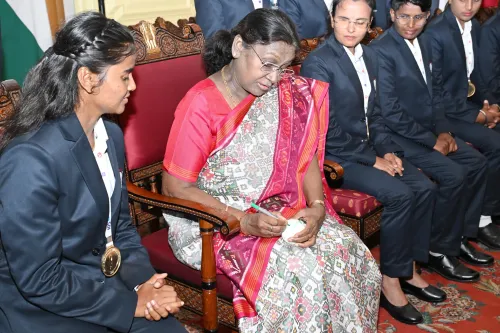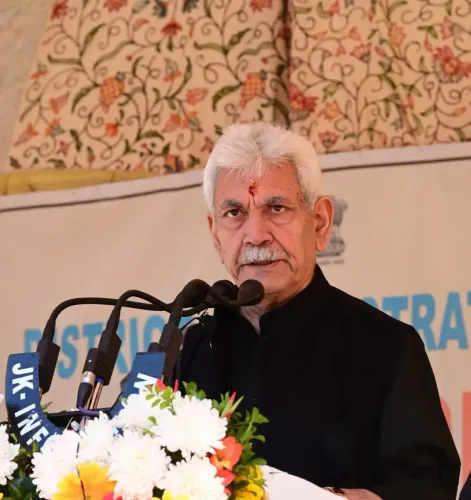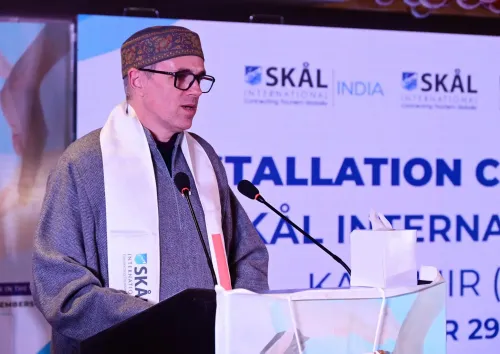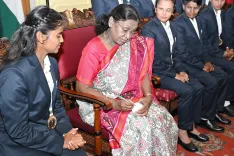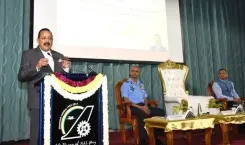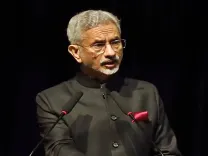What Happened in the Rajya Sabha with Rule 267 Disruption?
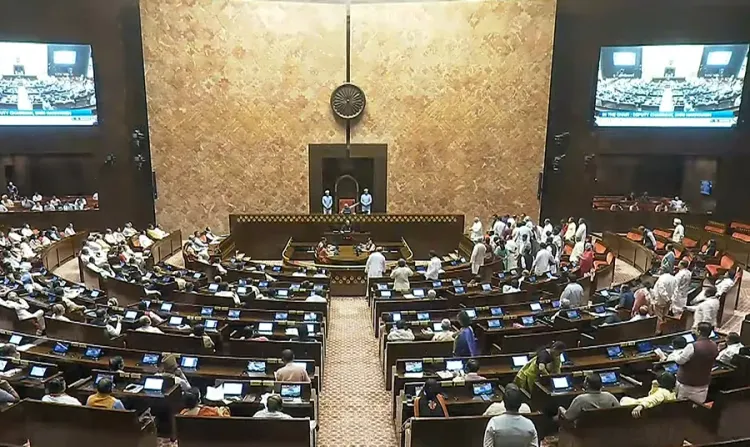
Synopsis
Key Takeaways
- Rajya Sabha disrupted due to rejection of notices.
- Deputy Chairman cites procedural issues.
- Parliamentary decorum is questioned.
- Significant loss of legislative time noted.
- Ministers presented crucial documents before adjournment.
New Delhi, Aug 11 (NationPress) The Rajya Sabha experienced another round of turmoil as Deputy Chairman Harivansh Narayan Singh chose not to accept 29 notices put forth under Rule 267, leading to loud protests from Opposition members and resulting in an adjournment until 2 P.M. on Monday.
Singh cited procedural restrictions and past parliamentary practices, stating that the notices submitted did not comply with Rule 267, which allows for the suspension of regular proceedings to address urgent public issues.
Among the 29 notices, 11 lacked a motion framed appropriately to solicit a decision from the House, while the remaining 18 were related to sub-judice matters and also failed to include a properly worded motion, he explained.
Reaffirming his previous ruling from August 5, Singh highlighted that there are prohibitions on discussing sub-judice matters to avoid any undue influence over judicial processes.
He further referenced Rule 238(5), which prevents discussions about individuals in high authority unless raised through a formal motion.
“Rule 267 is designated for issues of the utmost rarity,” he asserted, indicating that none of the notices met this critical standard.
In response to members' concerns regarding his earlier statements on Rule 267, Singh clarified that his comments on August 8 were not meant to offend any member.
“I trust the wisdom of the House to maintain the dignity of parliamentary procedures, ensuring that valuable time is not squandered,” he remarked.
As members erupted in protest, chanting slogans and donning badges, Singh expressed regret over the lack of legislative productivity.
“We had the chance to address 200 questions this session, but only managed to cover 14. We’ve lost 62 hours due to disruptions,” he pointed out before adjourning the House.
Before the adjournment, several ministers presented documents on behalf of their respective ministries, such as Power, Mines, Defence, Housing and Urban Affairs, Jal Shakti, Civil Aviation, and Minority Affairs.
Among the significant reports submitted were the Eleventh Report of the Committee on Ethics regarding simplifying asset declaration formats, the 362nd Report on the implementation of the National Education Policy, 2020 in higher education, and departmental reviews on Railways, Rural Development, Social Justice, Water Resources, and Energy.
Statements were also made by V Somanna, Satish Chandra Dubey, Raj Bhushan Choudhary, and Murlidhar Mohol, among others.

